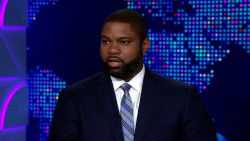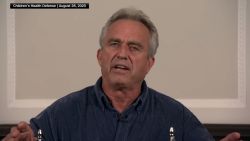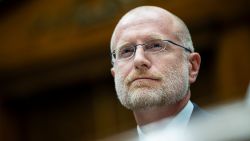President Joe Biden is still smarting from having been forced to abandon his reelection campaign more than three weeks ago and has made clear to those close to him that he was particularly unhappy with former House Speaker Nancy Pelosi, with whom he has not spoken since his decision to abandon his candidacy.
Sources stopped short of using the word “grudge” – but said Biden would not soon forget those who appeared to be most active in pushing him aside. While he has appreciated the warm embrace of Democrats following his decision, there have also been moments of eye-rolling after public tributes from certain party members who most actively tried to push him from the race.
The process that led him to exit the campaign left the president alternately embittered and relieved, according to people familiar with his mindset, who say Biden is still processing the events that led to his ouster as the Democratic standard bearer even as he firmly believes that he made the right choice. Another source familiar with the matter said that Biden was unhappy at the time, but “is not spending time ruminating” about it.
White House spokesman Andrew Bates disputed the characterization that Biden was still dwelling on his unhappiness with Pelosi, saying it was “not accurate” and that the president’s attention is “on the future, not the past.”
While the 81-year-old president holds some regrets about how it unfolded, Biden is now also enlivened by the opportunity to burnish his legacy without having to run a bruising campaign against former President Donald Trump.
And if Biden harbors any lingering hard feelings, he has been clear about one thing: He holds no hard feelings toward his vice president, Kamala Harris, who has swiftly replaced him atop the Democratic ticket.
Biden has told people he is proud of both how Harris rose to the occasion to replace him on the ticket and how the party rallied behind her — in no small part because he quickly endorsed her as his chosen successor.
Biden and Harris made their first official joint appearance in their new roles as lame duck president and Democratic nominee Thursday for an event focused on drug costs.
The two were effusive in their praise for one another during the event. “There’s a lot of love in this room for our president, and I think it’s for many, many reasons,” Harris said, as supporters chanted: “Thank you, Joe.”
Speaking after his vice president, Biden said Harris will make “one hell of a president.”
Since dropping out last month, an unambiguous mandate has been articulated to West Wing and former Biden campaign officials alike: Anyone who was working – until a handful of weeks ago – to reelect the president should now channel that same energy into helping elect Harris.
While Biden’s team has always included the vice president’s office in coordination on strategy, policy, and messaging, sources described a new internal dynamic in which more input is sought from top Harris aides, including her chief of staff, Lorraine Voles, whose role has become more integrated with the West Wing. Voles previously met one-on-one with chief of staff Jeff Zients regularly, but now the two meet daily, a source familiar with the matter said. Zients also checks in regularly with Harris.
The West Wing, a source familiar with the dynamic said, is “more deferential to the vice president’s side. Before, it would’ve been, ‘The president is announcing X thing,’ … Now, it’s more of a conversation to make sure it makes sense for her, too.”
One senior White House official said there is almost an “overcommunication” with the vice president’s team on all matters to ensure there are “no surprises, no mistakes, no crossed wires.”
Biden, for his part, has indicated that he is game to do a lot of things in the final stretch of the general election that might be helpful for Harris, sources said, including campaigning heavily in Pennsylvania, a key battleground where he was born. Sources said Biden was likely to try to help rally Harris coalitions with whom he’s enjoyed popularity: among union workers, senior citizens and rural Americans.
The president saw Harris as having remained unflinchingly loyal even as a flood of Democrats were calling on him to drop out of the 2024 race over the course of July – or, as in Pelosi’s case, were publicly articulating their concerns. People close to Harris say she “stayed in her lane” and refused to engage in the inbound calls her team fielded from lawmakers, strategists and donors expressing support for her to replace Biden on the ballot.
“[Harris] intentionally or unintentionally played it perfectly, which gave him the room to endorse her,” said a top Democrat close to the West Wing and the vice president’s office. “He’s willing to do whatever he needs to do to help her.”
Thursday’s event on drug costs will highlight an agenda item that’s been central to Biden’s term that Harris is expected to tout as the cost of living remains of high concern to voters.
In the last three weeks, Harris has been carefully assessing where to break with Biden on policy and messaging. She ditched his team’s doom-and-gloom message focused on January 6, 2021, and the danger Trump poses to the country, in favor of a message centered more on optimism and joyfulness. And when she releases her economic plan in the coming days, she’ll need to balance her own proximity to the Biden administration’s policies, sources say, with the general discontent among the electorate with Biden’s record on the economy.
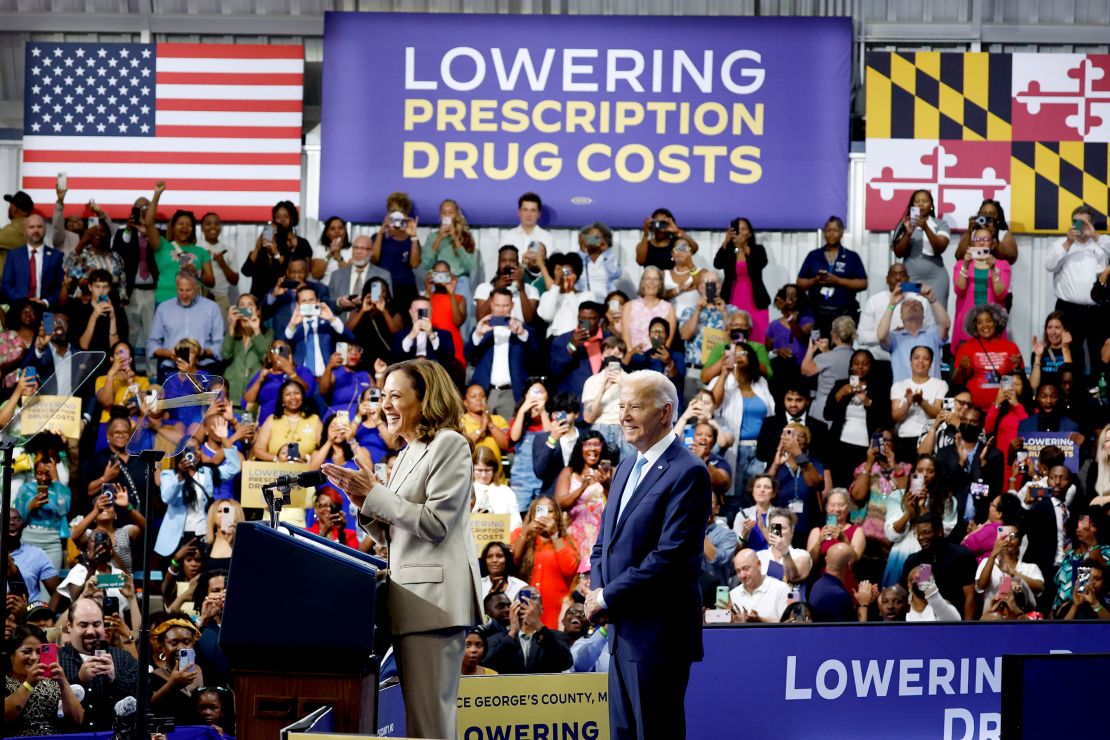
Preserving his own legacy
Biden’s pledge to help Harris win is genuine, according to people he’s spoken to, in no small part because he regards her success as a key part of his own legacy. There is a stark understanding in the White House that that legacy is intrinsically tied to Harris’ success, and Biden has repeatedly warned that a second Trump administration could unravel some of his signature achievements.
Still, Biden hasn’t entirely let go of asking himself what would have happened if he hadn’t botched the CNN debate in June that ultimately hastened his exit from the race. He continues to insist his subpar performance was due to illness and nothing more, and has pointed to polls that he said showed a tight race with Trump.
At one point in the immediate aftermath of his decision to step aside, there were early discussions of the president possibly attending Harris’ convention speech next Thursday to watch her formally accept the party’s nomination. But those talks did not advance, and Biden is not expected to participate in the Chicago event past his primetime speaking slot on Monday evening.
Officials say plans for how Biden will hit the campaign trail with and for Harris are still being finalized and are likely to take shape after Labor Day. He is expected to attend additional joint events with Harris and will also fundraise for her campaign in the coming weeks, a Biden adviser said.
The president, a former Democratic official said, could be used by Harris’ campaign as a “validator, a foil, and a special guest,” suggesting that Biden and Harris’ team will be strategic about what he chooses to weigh in on – and could also give her cover on policy areas where she seeks to create some daylight.
However actively the president chooses to be a surrogate for his former running mate, it will be just a part of the president’s final five-plus months left in office.
Almost immediately after ending his campaign, Biden asked that his top aides start drafting an agenda for the rest of his time in office.
“The very day – it was a Sunday that the president decided not to run for reelection – he pulled together the senior team here at the White House and asked us what’s the plan for the next 180 days to finish as strong as we started?” White House chief of staff Jeff Zients told political appointees on a call last week, according to audio of the call obtained by CNN. Zients added that Biden was focused on continued implementation of legislation – but also new policy.
The abrupt end to Biden’s political ambitions came as a surprise to many inside the White House, which had not developed alternate plans should he drop out. It took staffers some time to recalibrate their approach, which will see Biden engaging in more limited domestic travel – save for stumping for Harris – and spending more time overseas to cement his foreign policy legacy.
“You can expect to see very busy months of activity, of summits and trips to ensure that we do everything we can to leave it on the field,” national security adviser Jake Sullivan told political appointees on the call, adding that there would be “high-level summits both here and abroad.”
While White House officials have been tight-lipped about any potential travels abroad, some privately point to Europe as an obvious destination to highlight his work strengthening the NATO alliance and the US defense of Ukraine. They also point to increased engagement with India and Africa, where Biden has prioritized building partnerships that would decrease their reliance on China and counter Beijing’s soft power around the world. Biden visited India when it hosted the 2023 Group of 20 Summit but has not delivered on a promise to visit the African continent.
As the 2024 G20 in Brazil approaches, Biden must weigh the potential for a final face-to-face with China’s Xi Jinping. He’s known the leader, whom he recently called a “dictator,” for decades and warned him against aggression in the Indo-Pacific. Aides have discussed adding other stops to the trip to Brazil.
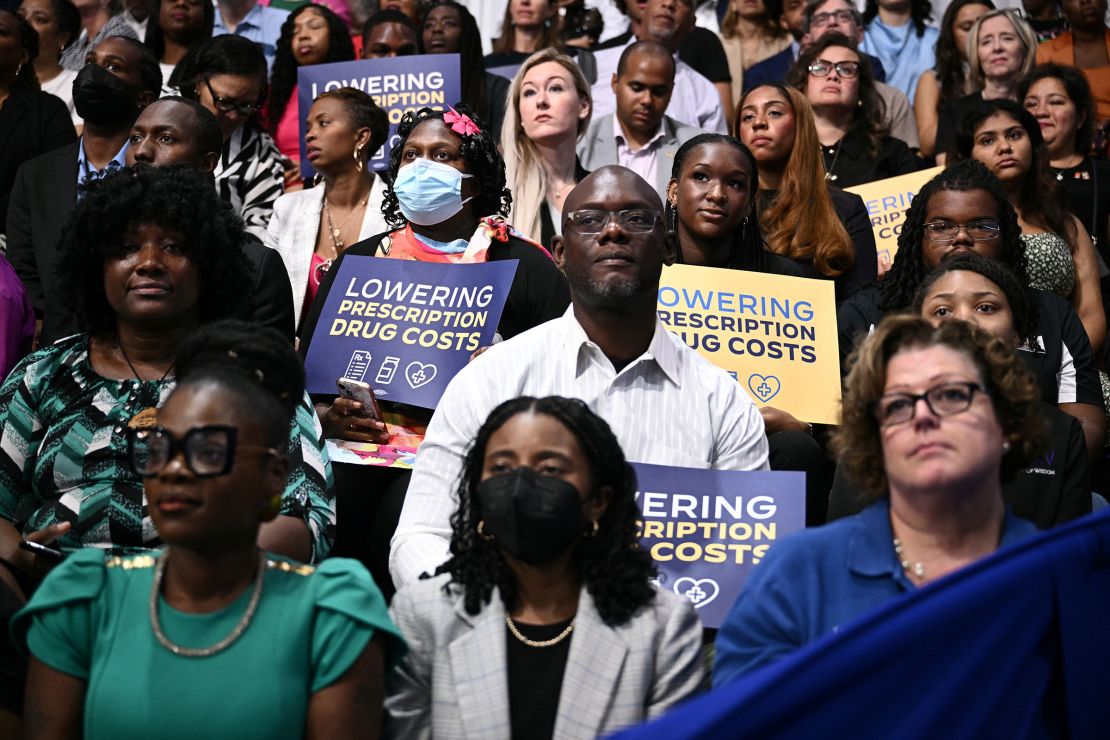
Keeping a lower profile
For now, however, the president’s schedule has been far lighter than it was when he was still a candidate. No longer obliged to demonstrate his vigor and acumen to a skeptical public, he has traveled less often and held fewer public events at the White House, opting instead for closed-door meetings with his team.
Staying out of the limelight has also been a strategic move aimed at giving Harris space in the nascent weeks of her campaign, sources said.
“Everyone’s been talking about how she needs to define herself. Him taking a step aside and letting her be the center of attention is letting her define herself. She has the headlines, she’s communicating directly and capturing people,” a source familiar with the dynamic said.
Since suspending his reelection campaign, Biden has largely stayed behind closed doors, receiving briefings, holding meetings and calling global counterparts amid significant tension in the Middle East. He has spent all or part of 14 of the last 24 days at one of his Delaware homes or at Camp David.
Notably, he joined the vice president at Joint Base Andrews as they welcomed a historic release of prisoners from Russia, a key accomplishment he said underscored his work toward rebuilding alliances abroad.
On Wednesday, Biden dropped by a White House conference for digital creators, where he showed he was willing to find some rueful humor in recent events.
“You break through in ways that I think you’re going to change the entire dynamic of the way in which we communicate. And that’s why I invited you to the White House – because I’m looking for a job,” he said.
CNN’s Michael Williams contributed to this report.











